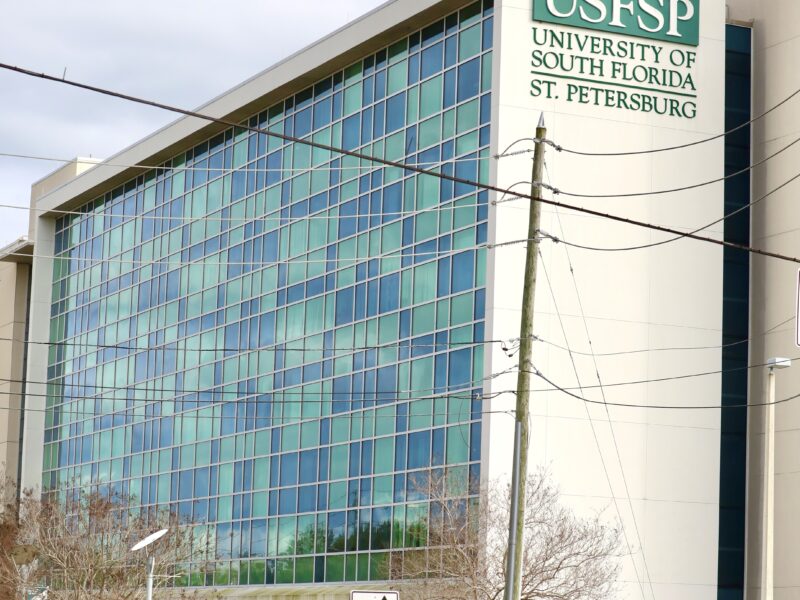
The map above depicts the data collected from calls made to the National Human Trafficking Resource Center hotline from 2007-2012. Florida is the third highest state in sex trafficking reports.
Professor and students use social media to warn teens of exploitation.
In a state that is already notorious as a haven for human trafficking, USFSP professor Joan Reid has documented a disturbing trend: Many of the underage victims are intellectually disabled and “might not even realize they are being assaulted.”
Reid, an assistant professor of criminology, cites a national map compiled by the National Human Trafficking Resource Center, which offers information, aid and support to victims.
The map shows human trafficking trends around the country, with red marking the areas with the most cases.
“Florida is bright red,” Reid said.
In her research, Reid studied case files of 100 underage victims in Tampa and Miami and found that 30 percent of them were girls with intellectual disabilities.
Women and girls usually become prostitutes “through force, threat, use of coercion, abduction, fraud, deception, abuse of power and vulnerability,” Reid said.
Intellectually disabled girls are even more threatened, she said, because of their inability to comprehend the extremity of abusive treatment.
“Sometimes they don’t understand what’s happening or have a way to communicate the assault to someone that they trust,” Reid said. “They might not even realize that they’re being assaulted or that what’s happening to them is illegal.”
As part of her victimology class at USFSP, Reid involves criminology students in her research and work with victims, developing prevention materials for girls at risk of being exploited by sex trafficking.
“Together with community partners we are revising and evaluating an online sex trafficking campaign,” Reid said. “The campaign uses social media to educate young teens about the potential indicators of exploitation in sex trafficking and directs the them immediately to call a 24-hour hotline.”
Reid said student’s expertise on social media skills help her effectively work on the project.
“Looking at this anti-trafficking, social media campaign through the eyes of a student provides more authenticity to the campaign message, which will in turn make the campaign more effective with teens.”
Undergraduate psychology students Julia Strauss, Kristen Twigg, Megan Bixler “are assisting with my next research project,” Reid said. “Together with community partners we are revising and evaluating an online sex trafficking prevention campaign” at www.droppingfbombs.” The F in “Dropping F-Bombs” stands for friendship, she said.
“The campaign uses social media to educate young teens about the potential indicators of exploitation in sex trafficking and directs them to immediately call a 24-hour hotline staffed by trained professionals if they suspect a friend is in danger of exploitation,” Reid said.
Without the student assistance and “their expertise on the tools and mechanisms of social media, I would definitely not be able to work as effectively on this project,” Reid said.
During her practice as a licensed mental health counselor, Reid said, she worked with girls who were victims of sexual abuse or sexual assault and realized it was underreported.
“There were no services,” she said. “…I realized we didn’t know. There really wasn’t information on best practices or how to identify these youths.”
Now, some organizations are starting to reach out to victims.
Redefining Refuge is a specialized nonprofit organization and advocacy group that opened in 2013. It offers shelter and therapy for girls through a residential safe house program. It looks to treat common conditions of sexual trafficking such as sexually transmitted diseases, mental health issues and physical health problems from beatings and abuse.
Bridging Freedom, a nonprofit based in Tampa, maintains a mission to “combat domestic minor sex-trafficking” and “restore stolen childhoods.” It advocates for victims and speak out in the community to warn about the problem.
The state has given Bridging Freedom $1 million to build a therapeutic safe home for “long-term, individualized and interdisciplinary care in a secure environment.
Victims “just encounter one horrific event in their life after another….and then this happens. It’s like disadvantage after disadvantage,” Reid said.
“Hopefully, something will change.”


